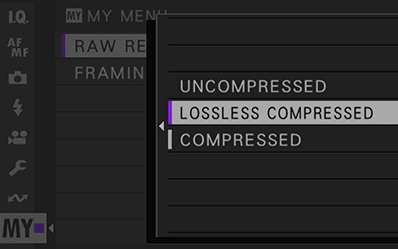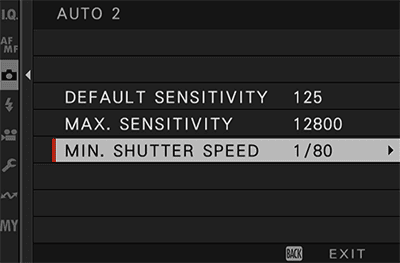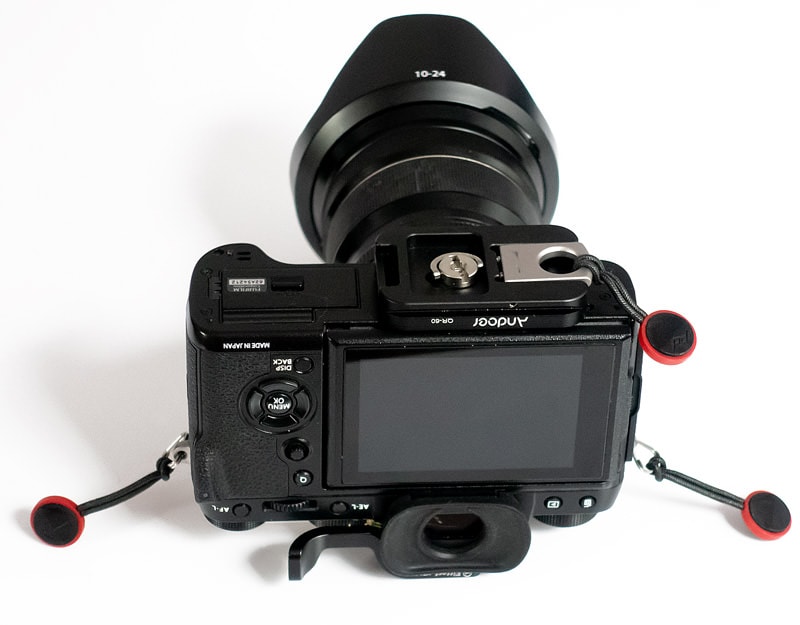The Fujifilm X-T5 assessment is my try to present you suggestions after capturing with the digicam for five months.
It isn’t a technical assessment however quite a private expertise of how the X-T5 mannequin affected my images.


The X-T5 is a stepping stone in my seek for an ideal digicam for my journey images. All of us perceive there is no such thing as a such factor as a “good digicam,” however the X-T5 is getting shut for a sort of images I do. It took me 15 years, 3 digicam manufacturers, and a dozen digicam fashions to get to the purpose the place I don’t have main annoyances in my digicam.
I switched from Sony to Fujifilm 5 years in the past, getting an X-T2 mannequin. I put collectively an in depth article outlining my reasoning for the switching and my first impressions of Fujifilm X-T2 particularly and the Fujifilm ecosystem basically. Fujifilm vs Sony turned one of the vital widespread articles on my web site, and even at this time, it attracts quite a lot of consideration.
X-T2 was and nonetheless is a really succesful digital digicam however as with all digicam, it had some shortcomings. And with the X-T5, Fujifilm addressed virtually all of them.
Please word I upgraded to X-T5 from X-T2, and despite the fact that I’ve expertise capturing with X-T3 and E-X3, in my Fuji X-T5 assessment, I primarily examine it to the digicam I used essentially the most, X-T2.
Design and Ergonomics
Fujifilm X-T2’s distinctive retro design was one of many causes I embraced the X-T sequence 5 years in the past. It supplied guide controls, compact dimension, and unprecedented energy over customizations. It checked many of the bins for my journey images.
I favored X-T2 a lot that it prevented me from upgrading to the Fuji X-T4 mannequin. Over two generations, the X-T sequence turned bulkier and heavier, beginning to resemble full-frame fashions. I used to be not too excited concerning the route the Fuji X-T line was progressing.
In 2020 after I determined to not go for X-T4, I even entertained the thought of in search of my subsequent digicam from one other model.
I assume I used to be not the one one who voiced dissatisfaction, and Fujifilm seen it and corrected its course.
And after I realized that Fujifilm determined to go to the unique roots with the X-T5, I knew instantly that I’d stick with Fujifilm.
The Fujifilm X-T5 is corresponding to the scale of X-T2. However they made it a bit deeper to accommodate IBIS and a much bigger battery. In response to the specs, it is just 50 grams heavier, even with the a lot greater battery. It additionally has a barely extra pronounced grip.
I’ve no complaints concerning the ergonomics, however X-T5 feels completely different in my hand. I assume 5 years of muscle recollections would let me discover even a tiny change.


AF ON and AEL Buttons
One other small change in physique design that positively impacted my images was the redesign and repositioning of AF-L and AF-L buttons. I perceive that the buttons had been redesigned and repositioned already on X-T4, however since I skipped it, it’s a new expertise for me.
Let me clarify.
I take advantage of the Again Button Focus and Auto Publicity Lock with just about each shot I take.
First, I level the digicam towards the scene I intend to seize and lock the publicity by urgent the AEL button. Subsequent, I activate the histogram contained in the EVF by urgent the button in entrance of the digicam and use the publicity compensation to regulate the publicity, making it as shiny as potential with out clipping the highlights. The method additionally is named ETTR (publicity to the suitable).
When I’m executed with the publicity, I maintain focus. I used the hyperfocal distance focusing method to maximise the depth of area of my panorama photographs. I level the one focus level at hyperfocal distance and press AF-L (AF ON on X-T5) to lock the main target.
Within the ultimate step, I recompose and press the shutter.
It would sound very cumbersome, however it takes me solely a little bit time with apply. However it permits me to take correctly uncovered and sharp photographs with 99% accuracy.
On X-T2, the buttons are tiny. Plus, the AF-L button is positioned in such a clumsy place that I by no means used it. I needed to program the Rear Command Dial to lock the concentrate on the press and use it as an alternative of the AF-L button.
On X-T5, the AF On and AEL buttons are extra distinguished, tactile, and positioned in the suitable locations to make use of when wanting via the EVF.
Again to the Future with LCD
A very long time in the past, when capturing with Canon, I noticed that I not solely haven’t any use for articulated screens but in addition despise them. As you may think about that I’m delighted that X-T5 went again to the outdated and confirmed 3-way tilt rear display design.
To summarize, there aren’t any dramatic modifications in design and ergonomics in X-T5, however all of them are welcome. I couldn’t spot any negatives to this point.
Picture High quality
After I discovered that Fujifilm X-T5 could be geared up with a 40MP sensor, I used to be initially very skeptical.
After capturing for thus lengthy with APS-C cameras, I used to be satisfied that 24-26MP sensors had been a candy spot for crop sensor cameras. The next megapixel rely wouldn’t profit however may even jeopardize picture high quality.
My concern was that tiny pixels of the 40MP sensor would negatively impression the dynamic vary and improve the noise degree via your complete ISO vary.
Plus, I used to be not too excited to cope with greater RAW information.
However as soon as once more, Fujifilm proved me improper. The brand new X-T5 40MP sensor is a huge leap ahead in comparison with older 24MP and 26MP Fujifilm sensors.


Sharpness and Particulars
I switched from Sony to Fuji primarily due to the unprecedented picture high quality and the excessive degree of element that Fujifilm X-Trans sensors produce. I used to be shocked that photographs taken with X-T2 had been sharp and even usable at 100% magnification.
Since I didn’t anticipate a lot from the brand new 40MP sensor, I hoped to get a minimum of the identical degree of picture high quality corresponding to X-T2. To my shock, the brand new X-T5 sensor exceeded all my expectations.
The brand new sensor produces a lot cleaner, sharper photographs with distinctive ranges of element. The RAW photographs taken at ISO 125 are usable even at 200% magnification.
It’s unbelievable.
I really like the brand new 40MP X-Trans sensor.








Dynamic Vary
I can not precisely measure the brand new sensor’s true dynamic vary, however what I’ve is expertise coping with digital photographs as knowledgeable graphic designer and photographer. Plus, I course of RAW photographs each day.
Based mostly on my statement, the dynamic vary of the X-T5 sensor is on par with the X-T2 when capturing at ISO 200 and up. However X-T5 produces a wider dynamic vary when capturing at a base ISO of 125. Since X-T2 has no native ISO decrease than 200, it’s in all probability not a good comparability.
But when I needed to summarize, the X-T5 produces a wider dynamic vary on the base ISO.
And since most of my photographs are taken at base ISO, it’s a large constructive for my images.




New RAW Compression Possibility
Fuji X-T2 has two RAW compression choices: Uncompressed and Lossless Compressed. The Uncompressed file dimension is round 50MB; add Lossless Compressed is about 28MB.
After analyzing each variations, I couldn’t see the distinction in high quality, even at 800% magnification. I didn’t see the rationale to make use of uncompressed RAWs, and for five years, I’ve been capturing with the Lossless Compressed choice.
Now, Fujifilm added one other compressed choice. Subsequent to the Uncompressed and Lossless Compressed, we have now a Compressed choice.


The brand new compressed choice produces the next file sizes:
- Uncompressed – 87MB
- Lossless Compressed – round 45MB
- Compressed – round 29MB
As earlier than, I’m sticking to the Lossless Compressed choice. However I’d not hesitate to make use of the Compressed choice if I’m pressed on area on the reminiscence card as a result of it nonetheless produces excellent RAW photographs.


Noise and Low Gentle Efficiency
Since I take most photographs at base ISO, low mild efficiency is just not crucial for my images. Most of my high-ISO photographs are household photographs.
However what I can say about low mild efficiency primarily based on my observations is it’s on par with my outdated X-T2.
However the degree of digital noise is completely different.
Throughout your complete ISO vary, X-T5 produces a lot much less digital noise. Usually, the RAW photographs taken with X-T5 are cleaner.
It’s particularly noticeable at decrease ISO.
When you have got underexposed areas within the shadows and attempt to recuperate them in Lightroom, you get some degree of digital noise, even at base ISO. The X-T5 is completely different. You get little or no nostril at decrease ISO (125-400) even after aggressive shadow restoration.
If you shoot at excessive ISO (1600-3200) you may see picture degradation however with a a lot decrease digital noise degree. And whenever you mix X-T5 excessive ISO photographs with AI Denoise noise discount in Lightroom, you find yourself with extraordinarily clear and sharp photographs with a excessive degree of element.
My conclusion is new X-T5 sensor handles digital noise in another way in a really constructive means.




IBIS (In Physique Picture Stabilization)
IBIS is one other side of images I alter my opinion drastically about.
Previously, I took most of my journey photographs utilizing tripods. And I didn’t really feel the necessity for IBIS in my images. My place was that IBIS makes the digicam bulkier, dearer, and fewer dependable, with minimal advantages for my model of images.
What modified my thoughts was the effectiveness of Fujifilm lens stabilization. I noticed that my 2 important lenses (Fuji 10-24mm and 18-135mm) allowed me to take sharp photographs at a a lot decrease shutter velocity.
To vary my outdated habits, I deliberately began leaving my tripods at house, making an attempt to be taught to take higher handheld photographs. The entire expertise liberated me, permitting me to be extra artistic with the composition. I didn’t have to hold a full-size tripod in every single place, particularly throughout lengthy and demanding hikes.
Now with the X-T5, I can take my handheld journey even additional due to the effectiveness of its IBIS. I don’t assume it’s efficient as much as 7 stops, as Fujifilm claims, but when I needed to estimate, it’s rock strong as much as a minimum of 5.
When capturing with X-T2, I extensively used the Auto ISO characteristic, making an attempt to not go under 1/80s of shutter velocity with my dealt with panorama photographs.


Now capturing with X-T5, I hardly use Auto ISO in any respect. I set my ISO dial to 125 and really feel comfy capturing at large angles as much as 1/6s. It’s liberating.
I plan to proceed lowering tripod use and focus on handheld strategies. I noticed that if I wish to blur water in my landscapes, it’s simpler and quicker to take two pictures at completely different shutter speeds handheld and mix them in Photoshop later than organising the tripod.
To summarize, the IBIS (in-body picture stabilization) in X-T5 is horrifying efficient and not a ineffective characteristic for my images.


Battery Life
For me, the largest shortcoming of switching to mirrorless programs was poor battery life. X-T2 was not an exception. Over time, I’ve discovered many methods for extending the battery life in my mirrorless cameras and remembering to cost and produce a minimum of 3 batteries throughout my travels.
I keep in mind throughout my journey to Utah, after an hour of climbing, I noticed I had left spare batteries within the automobile. I needed to hike again.
Now with the X-T5, it seems like I’m again in my outdated DSLR days. I stick one battery within the digicam, which is sweet for a minimum of a day. I common from 580 pictures to 600 pictures per cost.
The one unfavorable right here is the digicam doesn’t include a charger. It’s worthwhile to spend one other $100 for a spare battery and charger.
Wi-fi Connectivity
I take into account the Fujifilm Distant App the weakest level of your complete Fujifilm ecosystem. It’s comprehensible since Fuji is just not a software program firm.
I used to be so excited after I switched from Sony to Fujifilm to lastly be capable of geotag all my photographs on the time of seize. However I noticed later that X-T2 would tag all the photographs with the identical coordinates of the situation the place you activated the app. Whether or not you stroll for 5km or drive for 100km, you’re going to get the identical geotagging as the unique location.
The implementation of geotagging in X-T2 was totally ineffective.
Now with the newest distant app together with X-T5, the geotagging works flawlessly. Lastly, I can take pleasure in automated geotagging with out even fascinated by it.
After I import new photographs into Lightroom and soar to the Map module, all photographs are robotically mapped to the suitable places.
Geotagging is a crucial characteristic for my images. Now I can pinpoint the precise location of my journey photographs with out losing any time.


Apart from geotagging, I don’t use different options of the Fujifilm Distant App.
Autofocus Accuracy
Fujifilm has been lagging behind Sony and Canon regarding Autofocus system efficiency and accuracy for years. The brand new X-T5 was supposed to cut back the hole. However I’m not the suitable individual to present you an knowledgeable evaluation of X-T5 autofocus enhancements. Usually, I shoot static scenes, manually choosing some extent to concentrate on.
However even I can see the substantial progress.
One in every of my favourite lenses is Fujifilm 35mm f1.4. It is without doubt one of the oldest Fuji lenses. I prefer it for the distinct photographs it produces, however it has an outdated focusing system. The focusing motor could be very noisy and gradual and tends to hunt always, making an attempt to focus in low-light situations.
Now when connected to X-T5, the lens acts in another way. It’s a lot quicker to focus and snappier, even in poor situations.
Video Efficiency
Sadly, I’ve no suggestions for you regarding video seize specs and efficiency.
I take advantage of X-T5 solely for images functions. I by no means even as soon as change the digicam to video mode.
Throughout my travels, I take advantage of GoPro as a video digicam. Separating video and photograph duties makes the method quicker with fewer problems.
Lenses and Equipment
The lens I take advantage of most frequently is Fujinon 10-24mm. It’s an excellent wide-angle lens with wonderful picture high quality, well-built, and efficient picture stabilization.
My second most used lens is Fujinon 18-135mm. Though I prefer it, I used to be in search of alternate options due to its shortcomings:
- It’s large and heavy
- 18mm is just not large sufficient on the large finish
- When it’s hanging on the leash behind my again, the entrance ingredient tens to increase below its weight
I needed to check it towards the Fujinon 16-80mm for a very long time, however I by no means had an opportunity to do it.
This time I made a decision to go for it. As an alternative of shopping for an X-T5 physique solely, I acquired the package, getting the digicam and 16-80mm lens collectively.
I had time to check 16-80mm for five months, and I can see it’s on par in picture high quality with 18-135mm. I made a decision to promote 18-135mm and preserve the 16-80mm. It’s smaller and lighter; 16 mm on the large finish is way more helpful than 18mm, and I’m keen to lose 50mm on the lengthy finish.


Many fellow photographers counsel I get 16-55mm f2.8 to exchange 18-135mm, however it could not work for me. The 16-55mm is large and heavy and doesn’t have picture stabilization. Plus, I don’t want an f2.8 aperture since I take most of my photographs within the vary of f8-f11.
Thumb Grip
If I had to decide on just one accent for my Fuji X-T5, it could be the thumb grip.
Though the Fujifilm X-T5 has a compact physique, it’s not light-weight. It weighs 557g. However because it doesn’t have a deep greep, it feels unbalanced. And it takes pointless effort to deal with it.


The thumb grip fixes the problems by distributing the burden between 4 fingers and the thumb. For me, it’s a recreation changer regarding ergonomics.
Fast Launch Plate
Since I’m a hybrid photographer capturing handheld and on a tripod, I wanted a quick-release plate to make it comfy to hold the digicam on a leash and mount it on a tripod in seconds.
It took me in all probability a 12 months to search out the common common quick-release plate that I favored, and it occurred to be the most affordable I attempted.


Sadly, you cannot get it from Amazon or B&H, however it’s nonetheless accessible on AliExpress. It value solely $10.
The Negatives of Fujifilm X-T5
I don’t see too many points in X-T5 that negatively have an effect on my images.
- In all probability the largest shortcoming that separates X-T5 from being a really skilled digicam is a shallow buffer. In case your images depends upon steady capturing, you in all probability want to contemplate the Fujifilm X-H2 and X-H2s.
- The digicam doesn’t include a devoted charger. However you may nonetheless cost the battery contained in the cameras.
- There is no such thing as a battery grip accessible for X-T5
- The X-T5 is made in China. I assume Fujifilm needed to transfer manufacturing from Japan to remain aggressive. However it allowed them to maintain the identical worth of the T-X sequence for 7 years.
Fujifilm X-T5 Evaluation | Conclusion
My first impression was that the Fujifilm X-T5 mannequin was not a revolutionary replace however quite incremental. However after capturing with it for five months, I believe it’s greater than a boring refresh.
Fujifilm improved picture high quality by introducing a brand new high-resolution sensor distinctive to APS-C cameras.
Fujifilm managed to enhance IBIS, making it more practical and compact.
Fujifilm diminished the digicam dimension in comparison with the earlier mannequin (X-T4).
Combining the brand new sensor and processor allowed the digicam to make use of extra refined auto-focus algorithms. And with such a contemporary and highly effective duo, there’s loads of room for autofocus enhancements via firmware updates.
From my perspective, the Fujifilm X-T5 is the perfect journey digicam. It’s sturdy, weather-sealed with professional-level options, and produces excellent photographs.
And truthfully, I’m struggling to provide you with my wishlist for the following XT mannequin.


